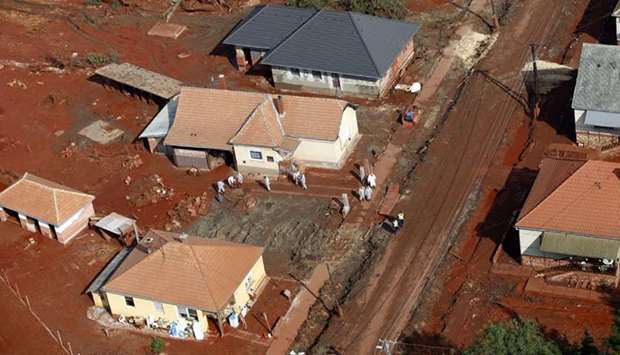A Hungarian court on Monday sentenced company officials to up to 2.5 years in prison for one of the country's worst environmental disasters that killed ten people and destroyed rivers with toxic waste.
More than 200 were also injured in October 2010 when a holding reservoir of the MAL alumina plant in the western town of Ajka burst its walls, sending 1.1 million cubic metres (38.8 million cubic feet) of sludge into nearby villages and countryside.The mud -- a caustic byproduct from the aluminium-making process -- also wiped out almost all life in nearby rivers, and even spread to the Danube.
In an initial trial in 2016, 15 company employees -- including the plant's former director Zoltan Bakonyi -- were cleared of any criminal wrongdoing, with the court finding the disaster was caused by factors largely outside of MAL's control.
The fault lay with the designers of the reservoir and the authorities responsible for carrying out checks, rather than MAL's staff, the court said at the time.
However, prosecutors successfully secured a retrial, arguing that judges had committed procedural errors and that the fallout of the disaster could have been diminished if management had intervened earlier.
In the verdicts from that two-year retrial, a court in Gyor on Monday sentenced the plant's director Bakonyi to 2.5 years for endangering the public by criminal negligence.
And it jailed his deputy for two years.
A further eight staff members were handed suspended sentences, fines or reprimands, while five company employees were acquitted.
The verdicts are open to appeal.
Despite vast sums spent on depolluting the region, it still bears traces of the tragedy.
Hundreds of hectares of land remain sealed off and cannot be used for cultivation.

